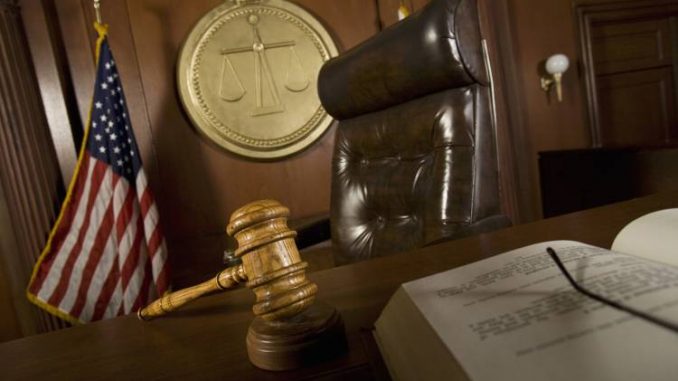
A federal judge in San Francisco has ordered parties in a landmark global warming lawsuit to hold what could be the first-ever U.S. court hearing on the science of climate change. (Dreamstime/TNS) Dreamstime
WASHINGTON — A federal judge in San Francisco has ordered parties in a landmark global warming lawsuit to hold what could be the first-ever U.S. court hearing on the science of climate change.
The proceeding, scheduled for March 21 by U.S. District Court Judge William Alsup, will feature lawyers for Exxon, BP, Chevron and other oil companies pitted against those for San Francisco and Oakland _ California cities that have accused fossil fuel interests of covering up their role in contributing to global warming.
“This will be the closest that we have seen to a trial on climate science in the United States, to date,” said Michael Burger, a lawyer who heads the Sabin Center for Climate Change Law at Columbia University.
Experts on both sides say Alsup’s call for a climate change “tutorial” is unlike anything they’ve heard of before.
“I don’t know of any judge who has asked for a tutorial like this,” said Steven E. Koonin, a physicist and former Energy Department undersecretary known for his contrarian views on global warming research. “I think it is a great idea. Anybody having to make a decision about climate science needs to understand the full spectrum of what we know and what we don’t know.”
In the five-hour hearing, both the cities and the oil companies will have a chance to present Alsup with their views on the history of climate change science, and the most important recent findings in the field.
Alsup ordered the tutorial as part of his ruling last week that the San Francisco and Oakland lawsuit would be heard in federal court, as opposed to California state court. The cities had hoped their lawsuit would be heard in state court, since California has an established “public nuisance” law that hasn’t been developed in the federal court system.
Supporters of the oil industry seized on Alsup’s ruling as a victory against what they call “sham lawsuits.” But the judge didn’t completely rule in the industry’s favor. His ruling created the possibility that oil companies could be liable under federal common law for causing a “nuisance.” Environmentalists applauded that part of his ruling, as well as his decision to hold the March 21 tutorial.
“The court is forcing these companies to go on the record about their understanding of climate science, which they have desperately tried to avoid doing,” said Marco Simmons, general counsel for EarthRights International, which helps groups worldwide litigate against major industries.
Alsup, appointed to the bench by former President Bill Clinton, has a reputation for immersing himself in the technicalities of legal cases. He famously taught himself the Java programming language in deciding a lawsuit that pitted Silicon Valley giants Oracle against Google. More recently, he asked lawyers for a tutorial on self-driving car technology in a lawsuit that pits Google’s Waymo against Uber.
In the upcoming climate change tutorial, Alsup told lawyers he wants a two-part presentation from both sides over roughly five hours.
“The first part will trace the history of scientific study of climate change, beginning with scientific inquiry into the formation and melting of the ice ages, periods of historical cooling and warming, smog, ozone, nuclear winter, volcanoes and global warming. Each side will have 60 minutes,” the judge wrote in his order.
“The second part will set forth the best science now available on global warming, glacier melt, sea rise and coastal flooding. Each side will again have another 60 minutes,” he added.
Science has been on trial before, most famously in the “Scope’s Monkey Trial,” the 1925 legal case on the teaching of evolution. But it is unlikely the March 21 tutorial will be a pure debate on global climate change. Exxon and other oil companies have already stated that “the risk of climate change is clear and the risk warrants action.” The oil industry has mostly accepted scientific findings that increasing carbon emissions are warming the atmosphere.
Instead, the hearing and ongoing trial will focus more on who knew what, when, and what they did in response.
“At the core of the plaintiff’s lawsuit is the idea that these companies have long known about risks of their products … yet they took a course of action that resisted regulation and sought to keep them on the market as long as possible,” said Burger, the Columbia climate law expert.
By contrast, the fossil fuels companies will likely emphasize the uncertainty that existed as climate science evolved, and how they needed “to act in the best interests of their shareholders,” given the uncertainty, he added.
Koonin, who worked for two years in the Obama administration and now teaches at New York University, has long called for a public debate on climate change science. While he agrees that human-caused carbon dioxide has warmed the atmosphere, he takes issue with some computer models about future impacts, and disagrees with calls for drastic changes in energy use.
Writing in The Wall Street Journal last year, Koonin called for a “Red Team/Blue Team” process to debate and test assumptions and conclusions about climate change. That idea was picked up by EPA Administrator Scott Pruitt, a close ally of the fossil fuel industry, who proposed the same thing for his agency, an idea he has apparently put on hold.
Koonin said any federal debate about climate change should involve all the government’s science agencies, not just EPA. He doesn’t think the U.S. District Court tutorial will substitute for a full public debate, but it could help air some key areas of dispute, he said.
He also expects there will be high public interest in the March 21 court hearing.
“You will probably get many more people than I chiming on the arguments made,” he said. “So you might get an effective second road of the red-blue exercise.”


